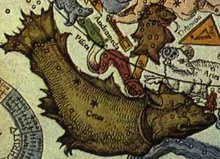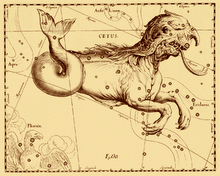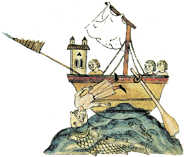Some of my friends that are not writers have told me that my blogs are too long. I am sorry, I don't realize it, my fingers get to going and it does not take that much time. Plus after a month of doing it I am finding it a bit easier to figure out how to go about my daily entries. Plus things out here in the wilderness (of thought) are a bit isolated, so what I don't say to anyone I say on my blog.
Today I want to talk about director Craig Brewer's "Hustle & Flow".
The movie stars Terrence Howard as DJay, the worn and weary pimp-o-matic with 3 female investments and inner angst. From the very first line he utters in the dismal isolation of a sun beat Caprice Classic to the very last shot of the film I was addicted. I watched it with my friend from high school, she has lived the life and I think for all the years I was in New York and other places I did not understand those realities. Yes, I understood them in the same sense I understood walking through urban areas or working with homeless people, but not life for my friend. For some time now I have had an insider view of a privileged guy just wanting to help. I am beginning to think of it as the insidious Florence Nightingale in pimp language syndrome that a lot of middle class black folk got. Do we really know what is going on? I did not assign such pimpin realities to my friend cause we were always laughing, but I found we never talked about those other realities until a mutual friend of ours was murdered by her husband 2 days after Christmas a coupld of years ago. After that, the sad song of a lonely hearted pimped out girl emerged from both of my friends, the one living and the one dead.
And at times, I think she has underestimated the things that have been going on with mine. My corporate isolation. The joy of archival isolation. The isolation of living in a different language. But those are all cerebral. They are not connected to a scarcity of resources in an mini-micro economic ghetto. Larger than that is the task of providing for children. Children make all the difference in the adult world. It creates a divide between the single and the parents. I have an inner maturity from books, a couple of relationships, independence (or perceived independence); versus, the outward maturity of thinking outside of yourself. And in the South it is an issue of social respectability and the accolades of having outer "responsibilities", seen children, your old ladies children from an old marriage, hidden children, children in jail, unknown children, a woman with child, etc. . . .
So, we watched the film together. And, during this homecoming, I must admit that it articulated the chasm that has developed between me and the people that live here. There were clearly two sides to the equation, the isolation of a legitimate world formed by the preoccupation of making a descent honest living, and on the other side, the underworld and its communal fortitude. Anyone that has "partied" and "rolled" with Philly Blunts, Crown, Miller High Life and a big pot of something spice must know what that feeling is and how easy it is to drift from the legitimate side to the underworld without skipping a beat because you have known your homeboy since 7th grade and you "know him", in a much different sense. You knew him before ghetto trappings, and he knew you before degreed sheep’s skin.
My quizzical apprehension to crunk music has started to evaporate due to the film. Part of it is because I see what is so familiar about it, its nothing but gansta walkin' with big speakers and sagging pants. The energy is a bit less melodic, its all flash and bling.
Howard's character is endearing. A guy that is in his mid-to-late 30's trying to become a full man. He wants to be a full fledged adult delivered from his lowness through his dream of becoming a rapper. In the South, people will say you are low because of the carnal things that you do. Like the chick that lived across the street. She danced for her boyfriend outside one night. She did it in front of his car light while he blasted the music and put lights on bright. Her preacher father had to have heard. My Church of Christ neighbors surely did see it cause they are the ones that told me. I was not living here. I heard about it after a visit from New York. The next day the Church of Christ matriarch supposedly told the preacher's big hipped daughter (Denomination Not Known -- DNK) that she was "low". That word has stuck with me since because it implies that she is down on the ground with the beast and water nymphs. She is separated from the angels. She has been come earthbound. And, in the streets, I see these earthbound teenagers. And, in the language of the crunk, the Church of Christ family and the DNK pole dancing daughter I hear phrases full of the "low" and "lowly"; those that want something to "swing low"; and, others that simply or rhythmically want to "rock away" like a chariot carrying baby jesus to the nativity. All crunk motion now. DNK daughter's street dance as seen by my Church of Christ neighbors was almost 10 years ago. I can't remember if that preacher died. I know that the woman that told me the story, my neighbor's eldest daughter, died during childbirth. I don't know who lives there across the street. I believe it is that same DNK daughter. The second daughter of my Church of Christ next door neighbors has started her family. None of us talk much. We simply don't talk much at all.
My film screening friend tells me that people in the projects don't care about my art. They are not thinking about "that". It seems as if much is lost in the translation of my languishing literary world to their literal and earthbound world. It is a small world because it is occupied by young people involved in behavior that keeps them young and in motherhood, and middle-aged with the responsibilities of an septuagenarian. Their bodies never catch-up to the task at hand.
"Hustle & Flow" is about a boy in a sense. It is an open world full of roaming visionaries independent of parental guidance. It is family made from different stuff. It is child bearing. It is the nastiness of a man fucking a 20 dollar whore. It is about a whore.
After figuring out sometime ago that I am a sucker for good marketing, good use of formula and seeing the human even in the highly photoshopped, I have started to read reviews for movies on-line. I read both "A Pimp With A Heart Follows His Dreams" by New York Times' A.O. Scott and the Village Voice's "Memphis Bleak: Trick daddy: Pimp-hop flick's troubled sensibility sabotages an exquisite lead performance." by Laura Sinagra. Both of them basically say the same thing concerning Howard's performance and the misogynistic overtones of the film. I agree with the both critics that Howard shines with minimal textual direction. Howard's technique and analysis of this character's situation does turn the movie into something special. A.O. Scott states, "The complexity -- one might less charitably say the incoherence -- of DJay's character requires a lot from an actor, and Mr. Brewer's good fortune in casting Mr. Howard can hardly be overstated. The actor's heavy eyes and downturned mouth convey weariness and worry, but he tries not to presume too heavily on the audience's sympathy."
The films depiction of a woman’s value and worth bothers both reviewers. For me the problem becomes, do these Florence Nightingale reviewers understand that this is what really happens in life? There are real live people that assign themselves to positions in which they are looking for a man to lead them or are looking for women to adore and follow them. Call it what you want. But in the South no woman is looking to get beat and have her grill totally jacked off her jawbone, but there are a lot of women that are looking for a King Solomon. There are a lot of women that are looking for a house to keep and a man to kiss before he fights the dragon. So, the critic falls flat on me, because I sat near Fisk University watching the movie on DVD with my friend who lived that life for 10 years. 10 years she talked about as if she possessed a deformed fetus in formaldehyde.
The critics talk about this movie as if it is a hip-hop fantasy, a real Earth Wind and Fire Alice in Wonderland Vacation Holiday for Ho’s.
The fact is pimping is woman hating. So when A.O. Scott says that the film does not endorse the behavior depicted in the film (DJay kicks one of his bitches out, and sets the tricks baby next to her still in his troller), "it is integral to the fantasy Mr. Brewer is selling, which is that pimping is not as hard as it looks." "Hustle & Flow" is not a girl flick. Pimping is hip-hop's boy power.
Sinagra attacks the female characters as a flock of flat characters that have arrived flatlined. They are different archetypes of female subjugation -- a mirage of brides of Pimpin'stein. The shrew, the docile blues (morphed into a modern lyrical sample lick) woman, the good christian woman, and the tramp are all haunting her perception of the films truly great performance by Howard. I will give her credit, but I will also give credit to the director, because in the world of philly blunts and reformed women that I know, they are still looking for a man, they are still looking towards me, and they are starting to apologize for call me a fag because I did not play sports and I liked to read so much. Sinagra reminds me so much of the writer and critic that always has a problem with how someone depicts someone else. "Great!, what else is new.", is always my response, because I am not convinced that she interacts with that world or knows what that world is. Must art always show another way out? Sometimes I think that art can show how things are.
In truth, her calling the collection of four women in the in the movie a feminine heresy does not bother me. But, one quote does. Sinagra declares very bluntly that ". . . in another pimp stroke, Brewer ensures that the two characters with the most innate ambition in his story are white: Manning's washout (Yevette, the caucasian pussy-over-popped youngster tired of the life -- I describe this in the jest of the pimp -- not my true personae) with a sudden head for business and DJ Qualls's stoner church pianist who lays down DJay's crunk beats." Sinagra goes on to say that the position of these white folk in the narrative was a hollywood "concession".
OK, I honestly don't know where to begin, so let's start with class and the South. First, these white folk did not wield any power. Yevette is a homeless young girl that tricks out of the back seat of cars, and DJ Qualls fills up vending machines for living. Hey! Go figure! Where does the representation of "innate" power get injected into the narrative? And I guess the most glaring misconception for this call against hollywood concessions is that Yevette's business sense comes from flirting with radio program managers and specialist in order to get the disk played. We do not see her squatting under a desk sucking off executives, but we do see her legs crossed and her running down a monologue and getting people to listen. Is that white power at work Sinagra? I wonder. I appreciate her critic until the end, then her language and observations smack of cynicism, which I simply don't like. It closes down discussions because cynics are just disgruntled clairvoyants that know what's going to happen anyway, and in this case what all the signs mean. The black folk are simply “hustling” and the “whites” have a work ethic. Fuck that, they all pimps, tricks and trickin' chicks.
Wednesday, February 08, 2006
Subscribe to:
Post Comments (Atom)







No comments:
Post a Comment